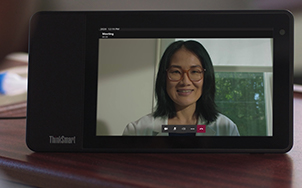Can smarter technology make virtual healthcare work for everyone?
Virtual healthcare delivers real relief.
Patients love the convenience of at-home access to medical expertise and specialized care.Source Physicians appreciate the ease with which they can coordinate care, solicit team input, and monitor patients with chronic conditions.Source Administrators welcome the cost savings associated with fewer hospital readmissions,Source ER visits,Source and patient no-shows.Source
Little wonder that 50% of healthcare executives foresee virtual delivery accounting for a quarter of all care—inpatient as well as outpatient—by 2040.Source
But virtual health isn’t without its headaches. One poor-quality video interaction can impact a patient’s entire provider experience.Source Servers overwhelmed by remote demands can deny providers timely access to crucial data. Each remote user heightens system vulnerability to hackers.
As a technology solution provider to over 3,000 healthcare organizations worldwide, Lenovo is acutely aware of these pain points. And in partnership with the IT departments who’ve helped accelerate the move to virtual healthcare, we’re relieving them. Lenovo is ensuring that virtual patient care remains connected, continuous, coordinated, and secure—by streamlining the IT that delivers it.
Connected and Continuous
To upload, update, analyze and archive the galaxy of data points that patients generate and regulations demand, hospitals typically rely on a portfolio of computing, networking, and storage solutions sourced from a host of different vendors. The result? Interoperability challenges. Friction can build in these complex systems, compromising access and performance.
That’s why Fraser Health Authority, the largest healthcare system in British Columbia, Canada, replaced its three-tier architecture with Lenovo’s flexible, scalable and reliable hyperconverged platform. This software defined infrastructure solution puts all computing, networking, and storage for Fraser Health’s 12 hospitals into a single virtualized box. Moreover, it allows Fraser Health to expand capacity virtually overnight, as they discovered in early 2020 when pandemic-induced lockdowns swept across Canada. Fraser Health was able to scale their Remote Desktop Services environment from 1,000 remote workers to 10,000, quickly and efficiently.
With virtual desktop infrastructure (VDI) as-a-service—such as TruScale for Hosted Desktops with Nutanix—we’re helping IT departments ensure that, no matter how large the healthcare system or sudden the disruption, patient care won’t suffer.
FEATURED SOLUTIONS
Connected and Coordinated
Coupled with Lenovo Analytics & AI and scalable storage solutions, our infrastructure can help healthcare organizations extract insight from exabytes of data in seconds. That empowers physicians to make more accurate diagnoses and customize patient treatments while enabling healthcare systems to improve their efficiencies and lower the cost of care.
But on an intimately human scale, too, Lenovo improves outcomes by optimizing digital interactions. Because when smart collaboration solutions like Virtual Rounding provide high-quality facetime, providers can focus on their patients. Patients become more forthcoming, and the margin for diagnostic error shrinks.Source Team communication becomes seamless too, alleviating burn-out among providers and providing patients with more continuous, coordinated care.
We design security that blankets our customers from chip to cloud. Every vendor in our supply chain, every component we purchase, complies with the most stringent security standards. Our customizable security solutions make it easy for your IT to set up guardrails that protect users from malicious WiFi and suspect files. Easier yet: Outsource security and lifecycle management to us with Lenovo end-to-end Healthcare Services and DaaS.
Lenovo can’t cure the common cold. But by streamlining virtual care delivery, our solutions can sustain the gains that enable better patient outcomes.















